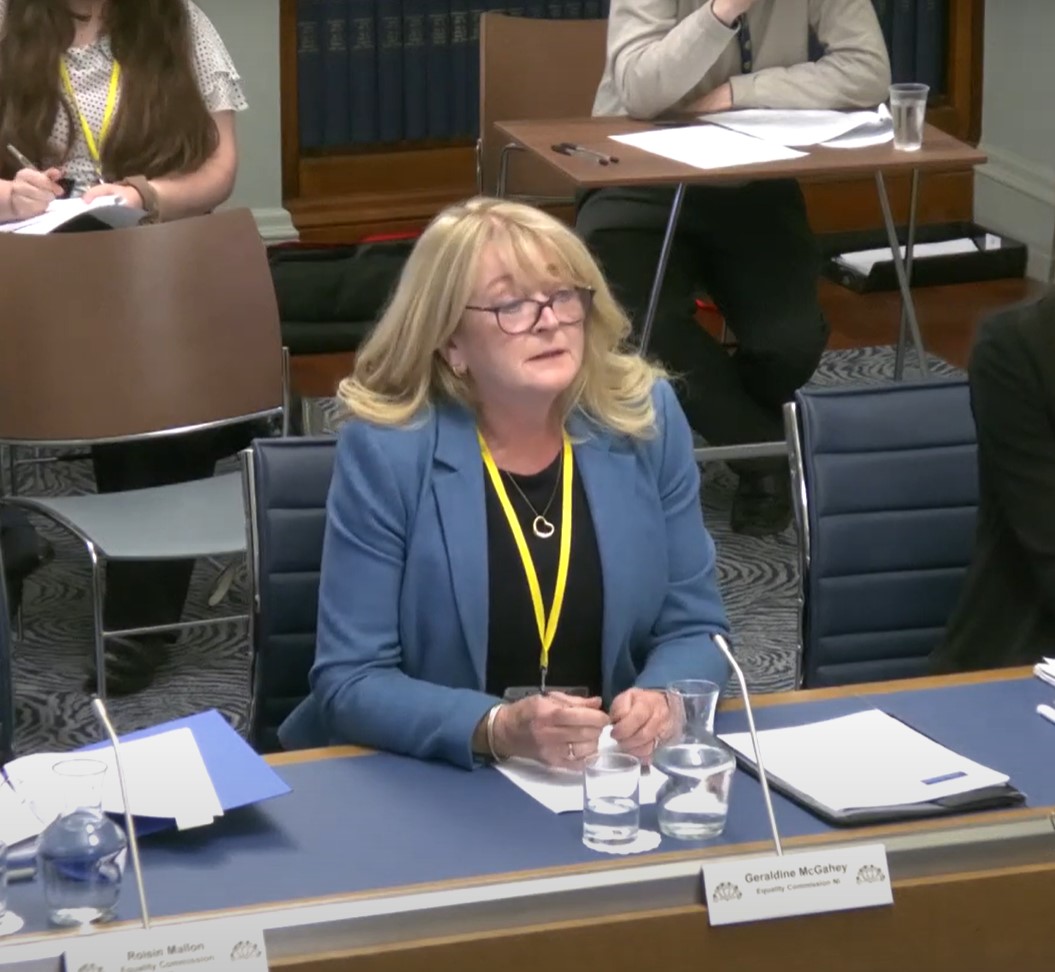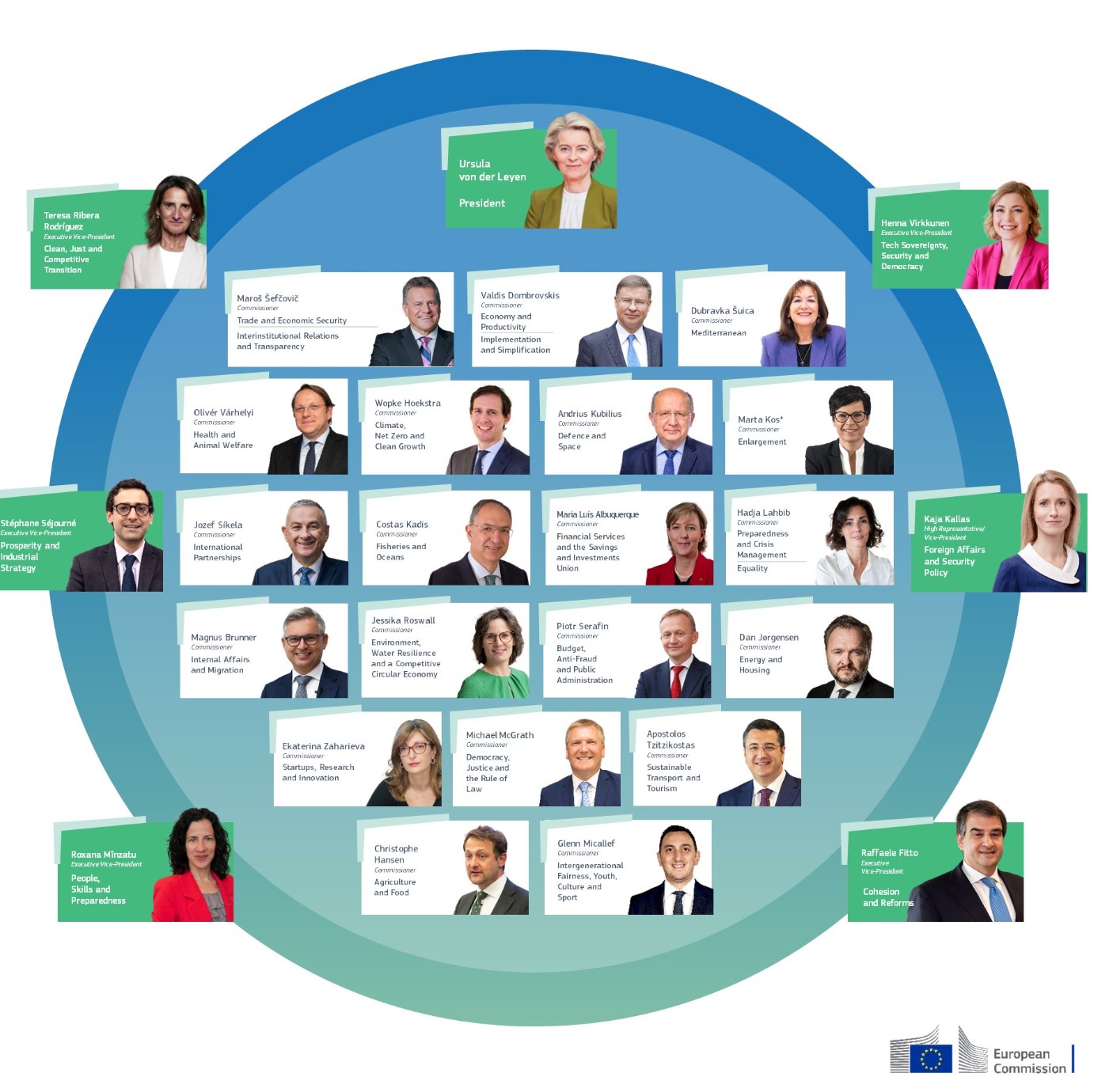Brexit & Beyond newsletter
17 September 2024
Welcome to the 17 September 2024 Brexit & Beyond newsletter
Last week the Assembly met for the first time following summer recess. Members of Sinn Féin brought a debate on EU funding for the community and voluntary sector. Yesterday, Members of the Ulster Unionist Party brought a debate on trade between Great Britain and Northern Ireland, highlighting the concerns of the Road Haulage Association regarding impacts on business-to-business deliveries.
The Committee for the Executive Office received briefings from the Equality Commission and the Equality Coalition as part of its Inquiry into Gaps in Equality Legislation.
Beyond the Assembly, the UK government has postponed post-Brexit checks on some fruit and vegetables, brought into the UK from the EU, as part of the Border Target Operating Model. His Majesty’s Revenue and Customs (HMRC) has confirmed that a procurement exercise for the next phase of the Trader Support Service (TSS) will begin by early 2025 and confirmed that the current TSS service has been extended to the end of 2025 as the implementation of the Windsor Framework progresses.
Research by the Centre for Business Prosperity at Aston University reveals that negative impacts of the UK-EU Trade and Cooperation Agreement have intensified over time.
The European Court of Justice issued a final judgment in the long running Apple State aid case, upholding the appeal of the European Commission and setting aside the judgment of the General Court of the EU. The ECJ has ordered Apple to pay $13bn (£11bn) in back taxes to the Republic of Ireland.
Finally, Ursula von der Leyen unveiled her new European Commissioners this morning. All nominees must appear for hearings before European parliament committees, before the full European parliament votes on whether to approve the entire commission.
Northern Ireland Assembly
Questions to the Executive Office
Following the summer recess, the Assembly’s first Plenary met on Monday 9 September. In response to a question from Dr Steve Aiken MLA on the resourcing of the Executive’s Office in Brussels (AQT 487/22-27), the deputy First Minister Emma Little-Pengelly told the Assembly that the Executive Office continually assesses the resourcing needs of the office. She agreed there is “a whole swathe of new responsibilities and new areas to be looked at” and “there is a pressure there on staffing time and the capability to assess all that.”
EU funding for the community and voluntary sector
Later that day, Colm Gildernew MLA moved a motion on EU Funding for the Community and Voluntary Sector. Mr Gildernew told the Assembly the “loss of funding, such as the European social fund (ESF) and the European regional development fund (ERDF), is impacting vital services across the community and voluntary sector, causing uncertainty in services that are often most needed by the most vulnerable groups across society.”

Colm Gildernew MLA debating EU funding for the community and voluntary sector
There was consensus that the situation requires urgent clarification. The Finance Minister Dr Caoimhe Archibald told the Assembly she has written to Secretary of State for Housing, Communities and Local Government about this matter. The Minister will also meet the Minister Norris, the Parliamentary Under-Secretary of State at the Ministry of Housing, Communities and Local Government, on 17 September.
Minister Archibald stressed plans for the Shared Prosperity Fund should be set out in the Chancellor's Budget at the end of October by the latest. She told Members she plans to raise concerns about successor funding with the Chief Secretary to the Treasury, as well as with Minister Norris.
The Assembly agreed the motion including an amendment from the DUP relating to meaningful input from local Ministers into UK Government development of future funding programmes.
Questions to the Agriculture, Environment and Rural Affairs Minister
On Tuesday 10 September, answering a question from Áine Murphy MLA on establishment of a just transition fund (AQT 502/22-27), Minister Muir agreed that an EU report on the creation of a temporary just transition fund outside of the Common Agricultural Policy funding will “be useful in making the case to the Department for Environment, Food and Rural Affairs.” The Minister has written to DEFRA on the issue and told the Assembly his department has earmarked funding of about £330 million and is making the case for separate capital funding.
Great Britain to Northern Ireland Trade
Yesterday, the Assembly agreed a motion brought by Members of the Ulster Unionist Party on trade between Great Britain and Northern Ireland. The motion highlighted concerns raised by the Road Haulage Association regarding impacts on business-to-business deliveries, particularly around the sanitary and phytosanitary requirements. Dr Steve Aiken OBE MLA detailed the “layers of bureaucracy” required by new arrangements coming into force at the end of September. He pushed for the First Minister and deputy First Minister to make these concerns known to the Secretary of State for the European Union. Gary Middleton MLA outlined outstanding areas of concern including the lack of HMRC guidance on new arrangements for the movement of parcels that are due to come into force at the end of the month; problems being encountered with the Trader Support Service; and a lack of clarity on some products entering Northern Ireland from GB.
Kate Nicholl MLA told the Assembly a negotiated veterinary medicines agreement and a grace period for the next phase of goods labelling is necessary. She said a sanitary and phytosanitary agreement must be bold and ambitious enough to meet UK and Northern Ireland needs. Matthew O’Toole MLA echoed this sentiment arguing for the “new UK Government to be ambitious” in its negotiations.
Inquiry into Gaps in Equality Legislation
As part of its Inquiry into Gaps in Equality Legislation, the Committee for the Executive Office took oral evidence from the Equality Commission and the Equality Coalition on Wednesday 11 September. Geraldine McGahey OBE, Chief Commissioner for the Equality Commission, highlighted the UK government’s commitments under Article 2 of the Windsor Framework to ensure that certain rights, safeguards and equality of opportunity protections in Northern Ireland are not diminished as a result of the UK leaving the EU. The UK Government also has ‘keeping pace’ commitments under Windsor Framework Article 2(1), in relation to the six Equality Directives in Annex 1. If the EU decides to amend or replace the rights in the Annex 1 Directives the law in Northern Ireland must also develop to take account of this. The UK Government has committed to introduce such changes where they ‘improve’ rights protections.
 Geraldine McGahey OBE, Chief Commissioner for the Equality Commission giving evidence to the Committee for the Executive Office
Geraldine McGahey OBE, Chief Commissioner for the Equality Commission giving evidence to the Committee for the Executive Office
Ms McGahey told the Committee that the Equality Commission considers that both the EU pay transparency directive and the EU standards for equality bodies directives should be transposed into Northern Ireland law by 2026 to comply with this statutory duty.
EU Commission
This morning, the European Commission President, Ursula von der Leyen, presented the new College of Commissioners. This comes a day after France’s European Commissioner, Thierry Breton, dramatically resigned citing “questionable governance” at the EU executive and said in an open letter that the Commission President had asked Paris to withdraw his name”.
 The European Commission President’s new European Commissioners
The European Commission President’s new European Commissioners
In a press conference, reported by the Guardian, Ursula von der Leyen said she managed to increase the number of women in the College compared to member states’ original proposals, noting that she chose to nominate women for four out of the six executive vice president roles. Maroš Šefčovič (Slovakia) has been nominated for two roles: Commissioner for Trade and Economic Security and Commissioner for Interinstitutional Relations and Transparency. In his role of Commissioner for Interinstitutional Relations and Transparency, Mr Šefčovič will report directly to the President. He said he was: “Truly honoured to be entrusted with trade and economic security as well as with interinstitutional relations and transparency. Crucial for the EU’s standing both at home and internationally.” Lisa O’Carroll of the Guardian reports he will retain the UK-EU relations portfolio. He is currently the Co-Chair (along with Minister Nick Thomas-Symonds) of the governance bodies which oversee the Withdrawal Agreement & Trade and Cooperation Agreement – see more on these structures here.
Irish Commissioner Michael McGrath has been assigned to the Democracy, Justice and Rule of Law portfolio. Stéphane Séjourné (France) is nominated as Executive Vice-President for Prosperity and Industrial Strategy. All nominees must appear for hearings before European Parliament committees, before the full European Parliament votes on whether to approve the entire Commission.
Erasmus + programme
At Westminster, Baroness Smith, the Minister of State, Department for Education, told the House of Lords the Government have not proposed any plans for re-joining the Erasmus+ programme. Regarding the Turing Scheme, the UK’s global programme for studying, working and living abroad, Baroness Smith told the House, that five out of 10 of the most popular destinations are within the EU. She continued to inform the House that the Government has committed £110 million of funding for this academic year.
UK Border checks on fruit and vegetables
The UK government has further delayed the introduction of post-Brexit checks on some fruit and vegetables, brought into the UK from the EU, as part of the Border Target Operating Model (BTOM). Implementation will be postponed by six months from 1 January 2025 amid concerns it would adversely affect food prices. The Guardian reports that the Fresh Produce Consortium, which represents 700 companies, had pushed for a delay, warning that checks could add more than £200m to import costs and result in higher food prices.
 The introduction of post-Brexit checks on tomatoes has been postponed until July 2025
The introduction of post-Brexit checks on tomatoes has been postponed until July 2025
A spokesperson for the Department for Environment, Food and Rural Affairs (Defra) confirmed that several fruit and vegetable products, including apples and pears, which were previously deemed medium risk, would now be changed to “low risk” and could be imported without any checks or charges.
Trader Support Service extended
On 16 September, His Majesty’s Revenue and Customs (HMRC) confirmed that a competitive procurement exercise for the next phase of the Trader Support Service (TSS) will begin by early 2025, to deliver ongoing support for traders from 2026. The TSS, launched in 2020, was created to support businesses and traders in complying with the requirements of the Windsor Framework when moving goods across the Irish Sea.
HMRC has also confirmed that the current TSS service has been extended to the end of 2025 as the implementation of the Windsor Framework progresses.
New research on EU-UK trade deal says ‘trade is being stifled’
The Financial Times reports on new research from Aston University, which examines the impact of the Trade and Cooperation Agreement on trade, three years on.
The analysis by the Centre for Business Prosperity at Aston University reveals that negative impacts of the UK-EU Trade and Cooperation Agreement (TCA) have intensified over time. The team analysed monthly import and export data between the UK and the EU, from January 2017 to December 2023 and separated into pre- and post-January 2021 when the agreement came into force. This revealed a 27% drop in UK exports to and a 32% reduction in imports from the EU, and a 33% decline in the range of goods the UK trades with the EU.
The Financial Times quotes the Cabinet Office’s response to the report saying the government would “look forwards, not backwards” when addressing the challenges created by Brexit, but would be sticking to the red lines set out in the manifesto. “We will work to improve our trade and investment relationship with the EU and tear down unnecessary trade barriers, while recognising that there will be no return to the single market, customs union or freedom of movement,” it added.
Apple State Aid case
On 10 September 2024, the European Court of Justice (ECJ) issued a final judgment in the long running Apple State aid case, upholding the appeal of the European Commission and setting aside the judgment of the General Court of the EU. The ECJ has ordered Apple to pay $13bn (£11bn) in back taxes to the Republic of Ireland.
 The European Court of Justice has ordered Apple to pay $13bn (£11bn) in back taxes to the Republic of Ireland
The European Court of Justice has ordered Apple to pay $13bn (£11bn) in back taxes to the Republic of Ireland
The case was brought in 2016 by the European Commission as they deemed that Ireland had unlawfully granted state aid to Apple through a series of tax base deals. The Commission had begun its investigation into the issue in 2013. At that time, Ireland’s corporate tax rate was 12.5% and was regarded as one of the key factors in Ireland’s attractiveness for tech firms. The tax rate and arrangements for corporate residence and taxation rules have since changed.
Both Apple and the Irish Government rejected the Commission’s decision in 2016 and appealed to the General Court of the EU which rejected the Commission’s decision in 2020. The European Commission then appealed the judgement of the General Court to the ECJ which issued its judgement last week – ruling that the Commission’s decision of 2016 now stands.
Responding to the judgment, Irish Minister for Finance Jack Chambers said “The Irish position has always been that Ireland does not give preferential tax treatment to any companies or taxpayers”.
Apple said in a statement:
"This case has never been about how much tax we pay, but which government we are required to pay it to. We always pay all the taxes we owe wherever we operate and there has never been a special deal."
"The European Commission is trying to retroactively change the rules and ignore that, as required by international tax law, our income was already subject to taxes in the US."
"We are disappointed with today’s decision as previously the General Court reviewed the facts and categorically annulled this case".
European Commission Vice-President Margrethe Vestager, Commissioner for Competition, said “Today is a big win for European citizens and for tax justice.The Court of Justice confirms the decision from 2016 by the European Commission: Ireland granted Apple unlawful aid which Ireland now has to recover. And this judgement is final… It is a win for the Commission. It is also a win for the level playing field in the Single Market, and for tax justice."
Other news
- This Friday, the Court of Appeal will hand down judgment in the Dillon case that deals with the Legacy Act in which Article 2 of the Protocol/Windsor Framework is expected to be considered.
- A review carried led by former European Central Bank chief Mario Draghi into the future competitiveness of the EU was published last Monday (9 September). It urges the EU to invest €750-800bn annually to close the economic gap with the US and China. Initial reactions are reported here.
- Prime Minister Keir Starmer has confirmed he will lead a new Council of the Nations and Regions which will involve the first ministers of all three devolved administrations. The House of Commons Library provides more information.




